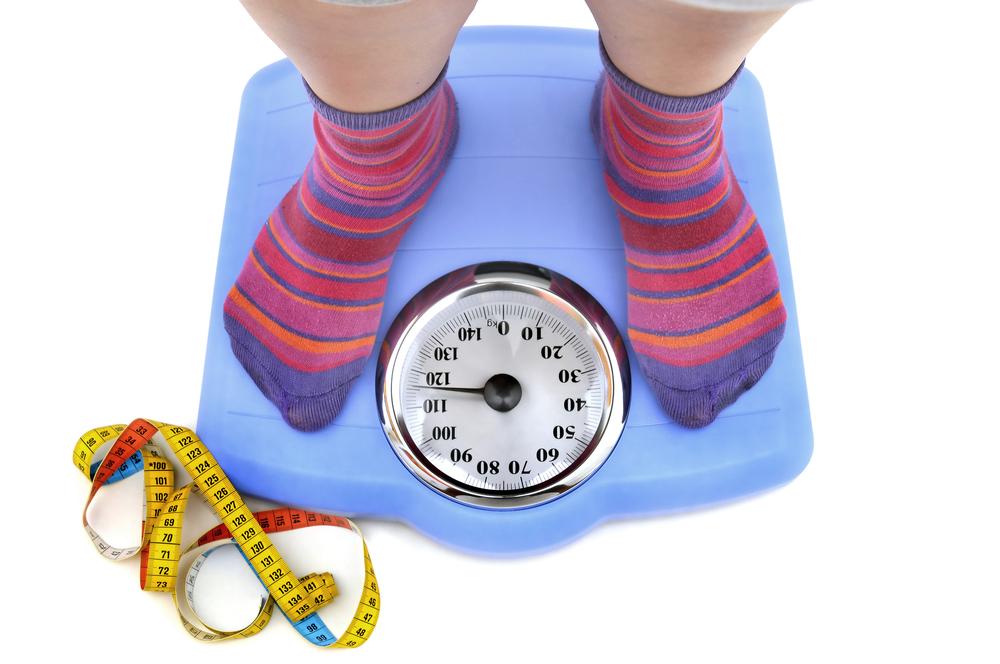World Obesity Day
Healthy WeightThe term obese describes a person who has excess body fat. In the UK it's estimated that around 1 in every 4 adults and around 1 in every 5 children aged 10 to 11 are living with obesity.
How to tell if you're living with obesity
The most widely used method to check if you're a healthy weight is body mass index (BMI). BMI is a measure of whether you're a healthy weight for your height. You can use the NHS BMI healthy weight calculator to find out your BMI.
For most adults, if your BMI is:
- below 18.5 – you're in the underweight range
- 18.5 to 24.9 – you're in the healthy weight range
- 25 to 29.9 – you're in the overweight range
- 30 to 39.9 – you're in the obese range
- 40 or above – you're in the severely obese range
If you have a South Asian, Chinese, other Asian, Middle Eastern, Black African or African-Caribbean family background you'll need to use a lower BMI score to measure overweight and obesity:
- 23 to 27.4 – you're in the overweight range
- 27.5 or above – you're in the obese range
BMI score has some limitations because it measures whether a person is carrying too much weight but not too much fat. For example, people who are very muscular, like professional sportspeople, can have a high BMI without much fat.
But for most people, BMI is a useful indication of whether they're a healthy weight. Another measure of excess fat is waist to height ratio, which can be used as an additional measure in adults who have a BMI under 35.
Risks of living with obesity
Obesity is a serious health concern that increases the risk of many other health conditions. These include:
- type 2 diabetes
- coronary heart disease
- some types of cancer, such as breast cancer and bowel cancer
- stroke
Living with overweight and obesity can also affect your quality of life and contribute to mental health problems, such as depression, and can also affect self-esteem.
Causes of obesity
Obesity is a complex issue with many causes. Obesity and overweight is caused when extra calories, particularly those from foods high in fat and sugar, are stored in the body as fat.
Obesity is an increasingly common problem because the environment we live in makes it difficult for many people to eat healthily and do enough physical activity. Genetics can also be a cause of obesity for some people. Your genes can affect how your body uses food and stores fat.
There are also some underlying health conditions that can occasionally contribute to weight gain, such as an underactive thyroid gland (hypothyroidism), although these types of conditions do not usually cause weight problems if they're effectively controlled with medicines.
Some medicines can also make people more likely to put on weight, including steroids and some medicines for high blood pressure, diabetes or mental health conditions.
Treating obesity
The best way to treat obesity is to eat a healthy reduced-calorie diet and exercise regularly. To do this, you can:
- eat a balanced calorie-controlled diet as recommended by a GP or weight loss management health professional (such as a dietitian)
- take up activities such as fast walking, jogging, swimming or tennis for 150 to 300 minutes (2.5 to 5 hours) a week
You may benefit from joining a local weight management programme with group meetings or online support. Your GP can tell you about these.
You may also benefit from receiving support and counselling from a trained healthcare professional to help you better understand your relationship with food and develop different eating habits.
Other obesity-related problems
Living with obesity can cause a number of further problems, including difficulties with daily activities and serious health conditions. Day-to-day problems related to obesity include:
- breathlessness
- increased sweating
- snoring
- difficulty doing physical activity
- often feeling very tired
- joint and back pain
- low confidence and self-esteem
- feeling isolated
The psychological problems associated with living with obesity can also affect your relationships with family and friends, and may lead to depression.
Serious health conditions
Living with obesity can also increase your risk of developing many potentially serious health conditions, including:
- type 2 diabetes
- high blood pressure
- high cholesterol and atherosclerosis (where fatty deposits narrow your arteries), which can lead to coronary heart disease and stroke
- asthma
- metabolic syndrome, a combination of diabetes, high blood pressure and obesity
- several types of cancer, including bowel cancer, breast cancer and womb cancer
- gastro-oesophageal reflux disease (GORD), where stomach acid leaks out of the stomach and into the gullet
- gallstones
- reduced fertility
- osteoarthritis, a condition involving pain and stiffness in your joints
- sleep apnoea, a condition that causes interrupted breathing during sleep, which can lead to daytime sleepiness with an increased risk of road traffic accidents, as well as a greater risk of diabetes, high blood pressure and heart disease
- liver disease and kidney disease
- pregnancy complications, such as gestational diabetes or pre-eclampsia, when a woman experiences a potentially dangerous rise in blood pressure during pregnancy
Obesity reduces life expectancy by an average of 3 to 10 years, depending on how severe it is.
Outlook
Managing a complex issue like obesity can be hard. Losing weight takes time and commitment. The healthcare professionals involved with your care can provide encouragement and advice about how to mange your weight, build healthy lifestyle habits and maintain weight loss achieved.
Completing a weight management programme, regularly monitoring your weight, setting realistic goals, and involving your friends and family with ways to lose weight can also help.
It's important to remember that losing what seems like a small amount of weight, such as 3% or more of your original body weight, and maintaining this for life, can significantly reduce your risk of developing obesity-related complications like diabetes and heart disease.





















































